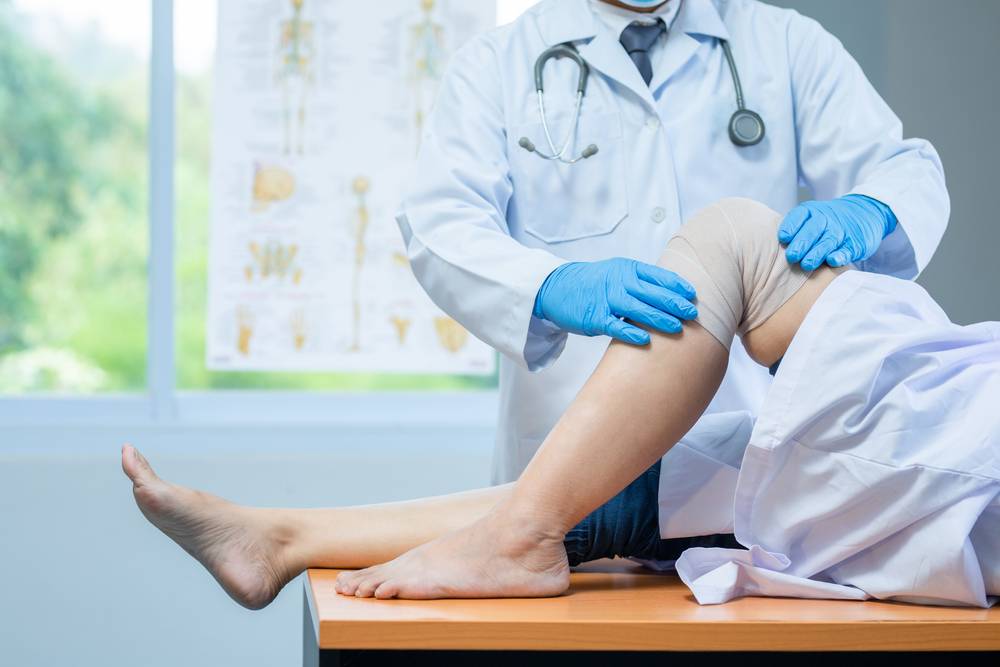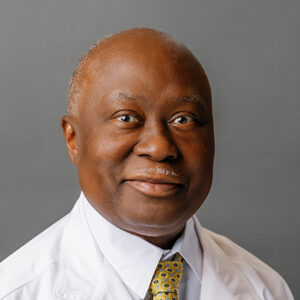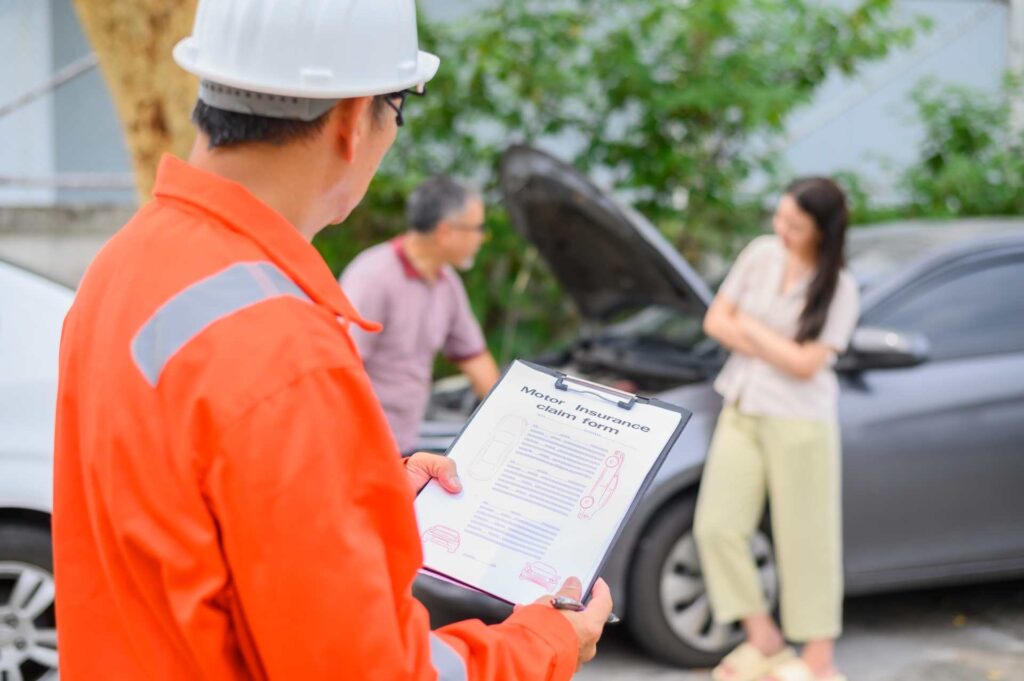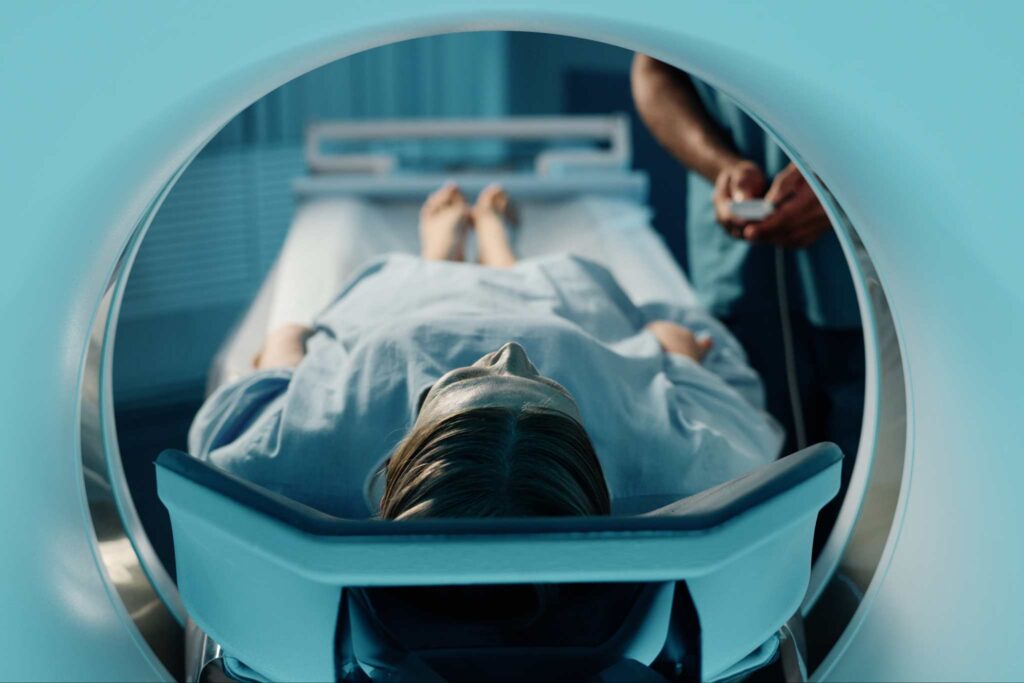Car accidents can leave a lasting impact on both your physical well-being and peace of mind, regardless of how severe the collision was. The jarring experience of a car wreck can even overshadow potential injuries, leading people to underestimate the importance of seeking medical attention afterward. Let’s explore the reasons why visiting a car accident doctor after an accident is crucial, even if you believe you’re only slightly injured. From uncovering delayed pain to establishing essential documentation for potential injury claims, we delve into the many aspects of post-collision medical care. From a minor fender bender to a more serious crash, understanding the significance of prompt medical attention can make all the difference in ensuring your health and legal protection in the aftermath of an accident.
Same Day Appointments Available Contact AICA and Begin Your Recovery!
Why Medical Attention After a Car Accident is Important
Car accidents can be both physically and emotionally distressing experiences. Even if you believe you’ve emerged from a collision unscathed, it’s essential to consider seeking medical attention. While it might be tempting to shrug off minor discomfort or assume that you’re perfectly fine, understanding the reasons for visiting a doctor after a car accident can play a significant role in safeguarding your health and future. From the commonly experienced delayed pain to the crucial role of comprehensive diagnostic tools like X-rays and MRIs, seeking medical care can be pivotal in ensuring your health and protecting your legal rights. Let’s explore key aspects of the importance of seeing a doctor after a car accident.
Delayed Pain is Common: One of the critical reasons to consult a doctor after a car accident is the possibility of delayed injuries after a car accident. Adrenaline and shock can mask injuries immediately after a car wreck, which may cause you to overlook potentially serious issues. Days or even weeks later, pain, discomfort, and stiffness can develop as a result of the accident’s impact. The longer you go without treatment, the more risk for complications or delayed recovery.
Comprehensive Diagnosis: Medical professionals can conduct thorough assessments, including X-rays and MRIs, to uncover any hidden injuries. These diagnostic tools help in identifying soft tissue damage, fractures, and other internal injuries that might not be externally evident. Diagnostic imaging can also be used to rule out injuries with similar symptoms to ensure you are getting the proper treatment.
Documentation for Injury Claims: Seeking medical attention also creates an official record of your injuries. In case you decide to file an injury claim with insurance or pursue legal action, having medical documentation linking your injuries to the accident is crucial for a successful claim. Doctors well-versed in car accident injuries understand the importance of providing clear and thorough documentation for insurance and legal purposes.
Do You Need to See a Doctor for a Minor Car Accident?
It’s a common misconception that minor car accidents only result in minor injuries. The reality is that even seemingly small collisions can result in hidden and potentially serious health issues. You might feel fortunate walking away from a fender-bender, but it doesn’t necessarily mean you’ve escaped unharmed. In fact, minor accidents often mask underlying injuries that can worsen over time if left untreated. This is why erring on the side of caution and consulting a doctor after even a minor car accident is an important choice.
The adrenaline surge you experience during and immediately after an accident can act as a numbing agent, temporarily masking pain and discomfort. As a result, you might not notice any immediate injuries, leading you to believe you’re perfectly fine. However, as days or even weeks go by, your body’s initial response will fade and any hidden injuries you experienced during the accident could start causing noticeable pain, stiffness, or discomfort. These delayed symptoms are a clear indication that seeking medical attention is vital, even if the accident seemed minor at the time.
What might start as a slight twinge or minor soreness can escalate into more significant problems if not addressed early. Soft tissue injuries, like muscle strains or ligament sprains, might not be immediately apparent, but they can result in persistent pain and limited mobility later on. By promptly consulting a doctor after a minor car accident, you’re taking proactive steps to catch these issues before they worsen, ensuring a smoother recovery process and potentially preventing chronic pain down the road.
Learn more about When to Go to the Hospital after a Car Accident
Which Doctor To See After a Car Accident
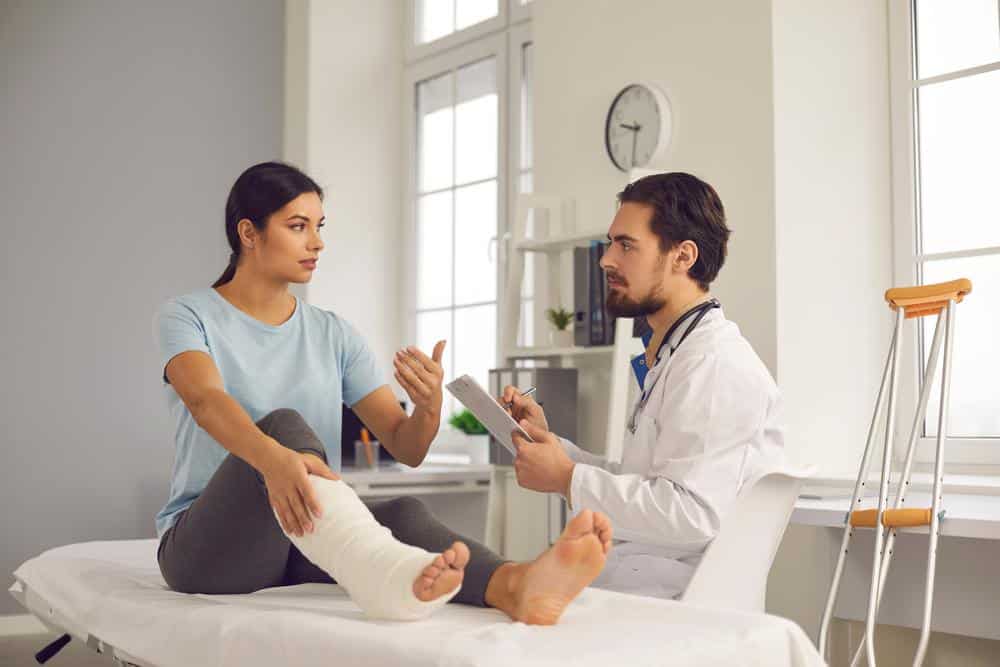
What doctor you should see after a car accident depends on the nature and severity of your injuries; collaboration among specialists may be necessary. Orthopedic doctors specialize in bones, joints, and muscles, treating fractures and sprains. Chiropractors focus on spine-related issues using manual adjustments for pain relief and mobility. Urgent care physicians can provide immediate attention for non-life-threatening injuries like cuts, sprains, and minor fractures. Emergency room doctors handle severe injuries like head trauma and fractures. Neurologists manage nervous system injuries such as head trauma and nerve damage. Physical therapists aid recovery with exercises and manual therapies for mobility.
Recognizing Signs That You Need a Doctor
Car accidents can put a significant toll on your body, even if the impact seems minor at first. Often, the signs of injuries might not be immediately evident, leading many to underestimate the potential harm caused by the collision. Paying attention to your body and recognizing common signs and symptoms of car accident injuries is crucial for timely intervention and a smoother recovery. Here are some common signs and symptoms to look out for after a car accident:
- Neck and Back Pain: Among the most prevalent indicators of car accident injuries are neck and back pain. Whiplash, a common injury resulting from the sudden jerking motion of a collision, can lead to neck pain, stiffness, and headaches. Back pain, often caused by strained muscles or spinal misalignments, can also manifest after an accident.
- Headaches and Dizziness: Persistent headaches or dizziness following a car accident can be indicative of an underlying issue. These symptoms might point to a concussion, a mild traumatic brain injury that can occur even without a direct blow to the head. Seeking medical attention to assess and manage these symptoms is essential for your well-being.
- Numbness and Tingling: Any sensations of numbness or tingling, particularly in the extremities, warrant attention. These symptoms might suggest nerve damage or compression, which can result from the impact of the collision. Timely evaluation can prevent the exacerbation of these issues.
- Bruising and Swelling: While bruising and swelling might seem like normal post-accident effects, they can also indicate internal injuries. These visible signs can be linked to contusions, fractures, or other damage beneath the surface that requires proper evaluation.
- Stiffness and Limited Mobility: If you notice stiffness, difficulty moving, or a decrease in your range of motion, it could signify musculoskeletal injuries that need attention. Soft tissue injuries or joint problems can lead to these symptoms, and addressing them early can prevent long-term complications.
- Delayed Onset of Symptoms: It’s essential to note that some symptoms might not appear immediately after the accident. Pain, discomfort, or other issues can surface days or even weeks later. This delayed onset is why seeking medical attention is crucial, even if you feel fine initially.
If you’re 100% sure you’re uninjured and won’t be filing an injury claim, you might consider skipping a doctor’s visit. However, keep in mind that it’s often better to err on the side of caution. If any doubts linger, a check-up is recommended. Choosing not to see a doctor after an accident can have serious repercussions. Untreated injuries might worsen, leading to chronic pain or complications that could have been avoided through early intervention.
What Happens During Your Car Accident Check-Up at AICA?
At AICA, your car accident check-up is a comprehensive process designed to ensure your well-being. Here’s what you can expect when you visit AICA after a car accident.
Testing
Our Atlanta diagnostic imaging centers can conduct a thorough assessment of your condition. This includes a series of tests, starting with a physical examination. This hands-on evaluation allows us to identify any immediate concerns, gauge pain levels, and pinpoint areas that might require further attention.
In addition to the physical examination, advanced diagnostic tools such as X-rays and MRI scans are utilized to detail your injuries. X-rays help us visualize bone fractures, joint dislocations, and other structural issues, while MRI scans provide a comprehensive view of soft tissues, revealing hidden injuries like muscle tears and ligament damage. This comprehensive testing ensures that no injury goes undetected, setting the stage for an accurate diagnosis.
Consultation and Treatment Plan
Once the test results are available, you’ll engage in a thorough consultation with one of our car accident doctors. This consultation allows you the space to share your experiences, symptoms, and concerns. This is also a chance for the doctor to provide a clear explanation of the findings from the tests and the implications for your health. With a combination of test results and your input, our team of doctors craft a personalized treatment plan tailored to your specific needs.
At AICA, our dedicated team of professionals includes a range of specialists who are well-versed in addressing the intricacies of car accident injuries. Whether your injuries require the expertise of pain specialists, orthopedic doctors, chiropractors, or physical therapists, we’ve got you covered. We understand that every individual’s recovery journey is different, and our doctors collaborate to provide personalized car accident injury treatments that address your specific challenges all under one roof.
Legal and Insurance Guidance
Understanding the intricate legal and insurance aspects that often accompany car accidents can be overwhelming. At AICA, we’re not only committed to your physical well-being but also to providing guidance in navigating these complex waters. Our team is well-versed in the intricacies of documenting injuries for insurance claims and legal proceedings. We provide comprehensive assistance, helping you gather the necessary medical documentation to support your case. This includes detailing the nature and extent of your injuries, as well as the treatment plan recommended by our medical professionals. By providing this essential documentation, we aim to facilitate a smoother process for any insurance or legal claims you may choose to pursue.
Find an AICA location near you to begin recovering from your car accident injuries.
